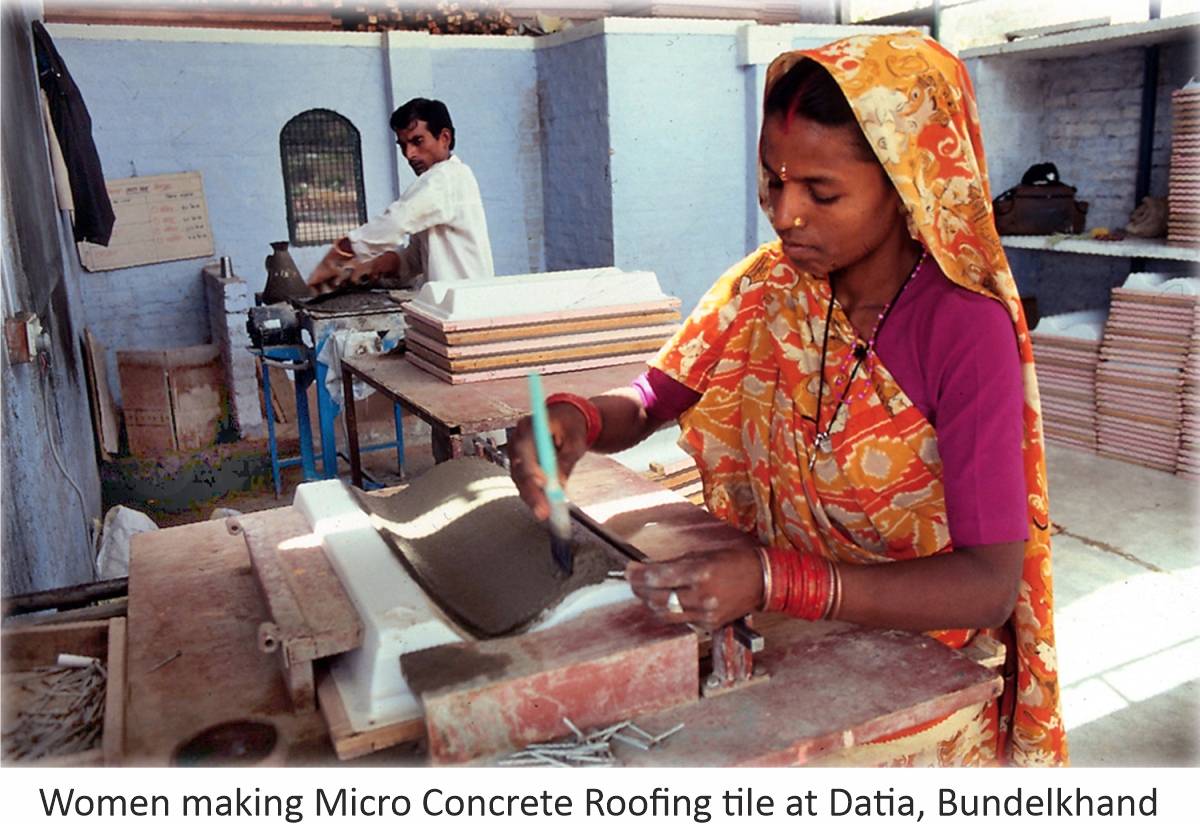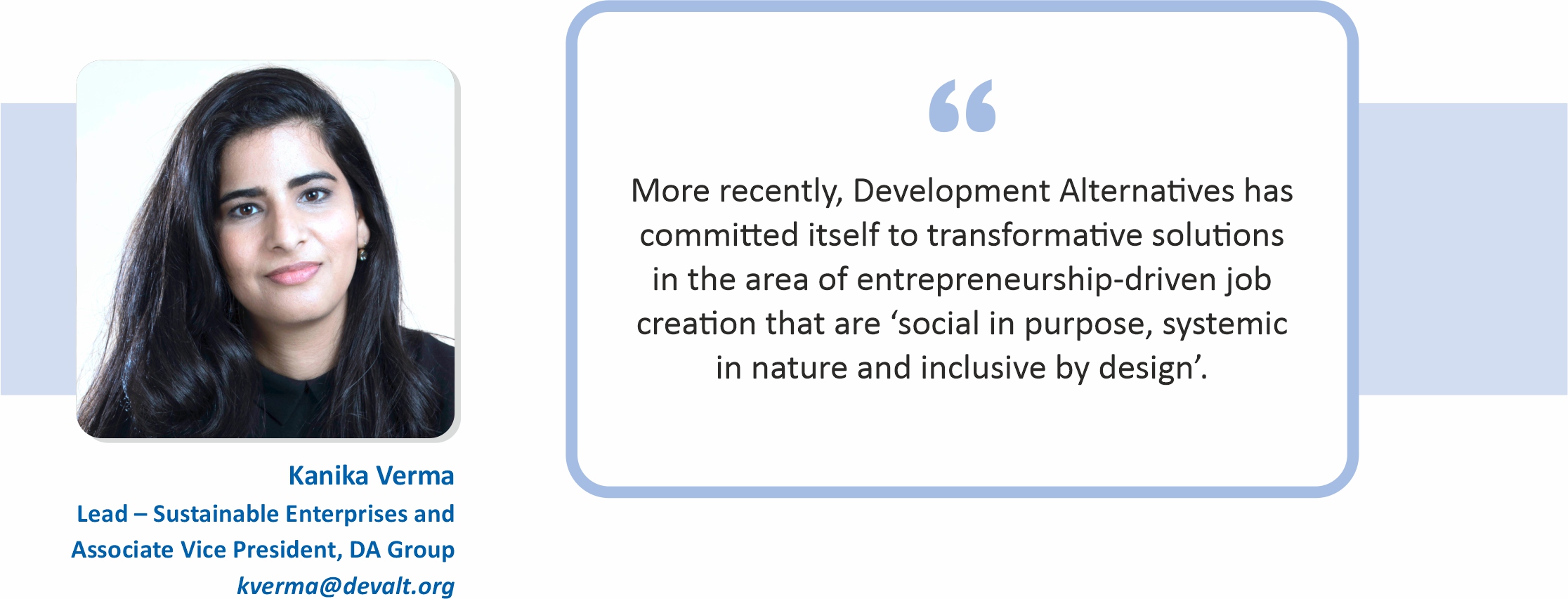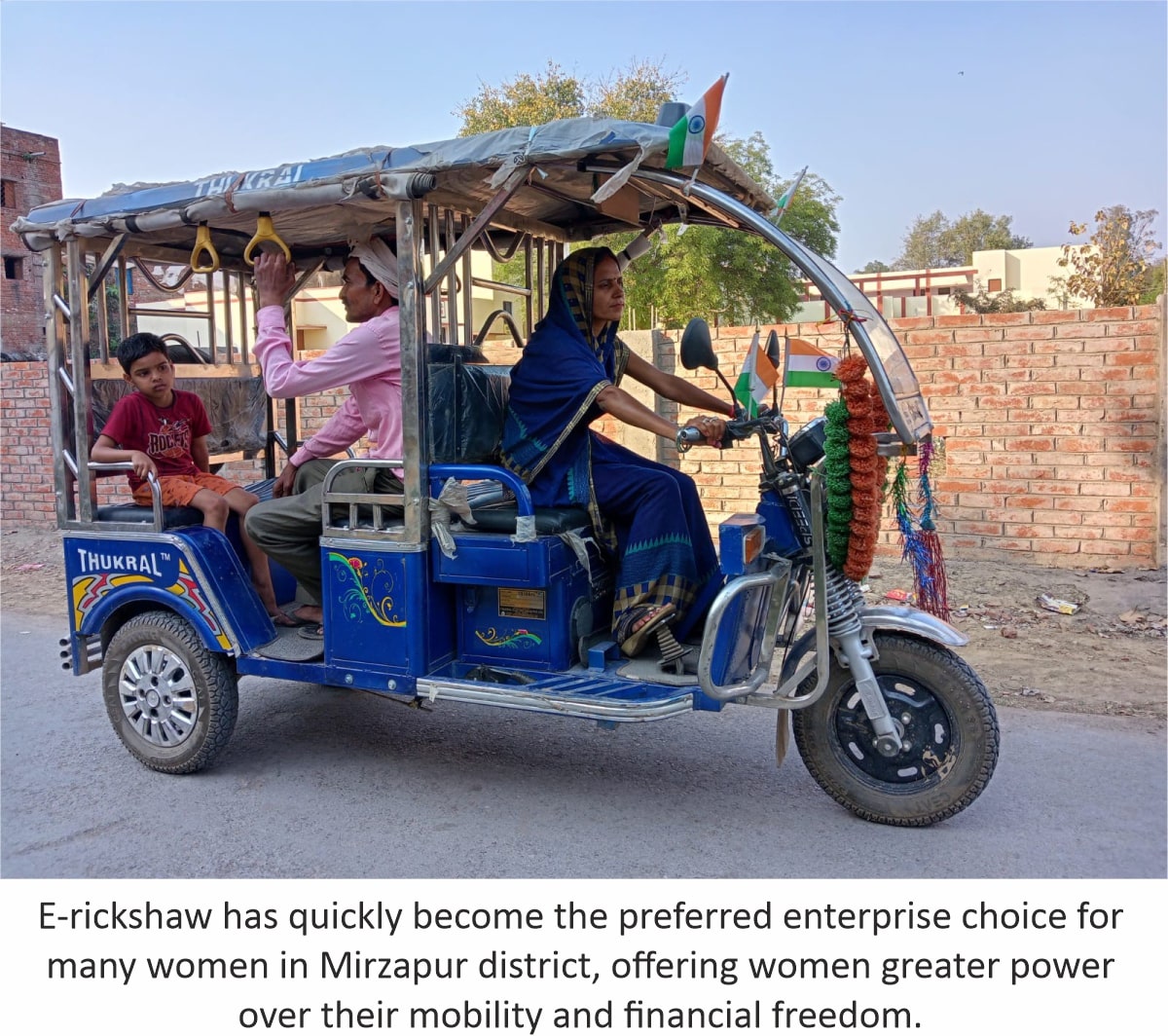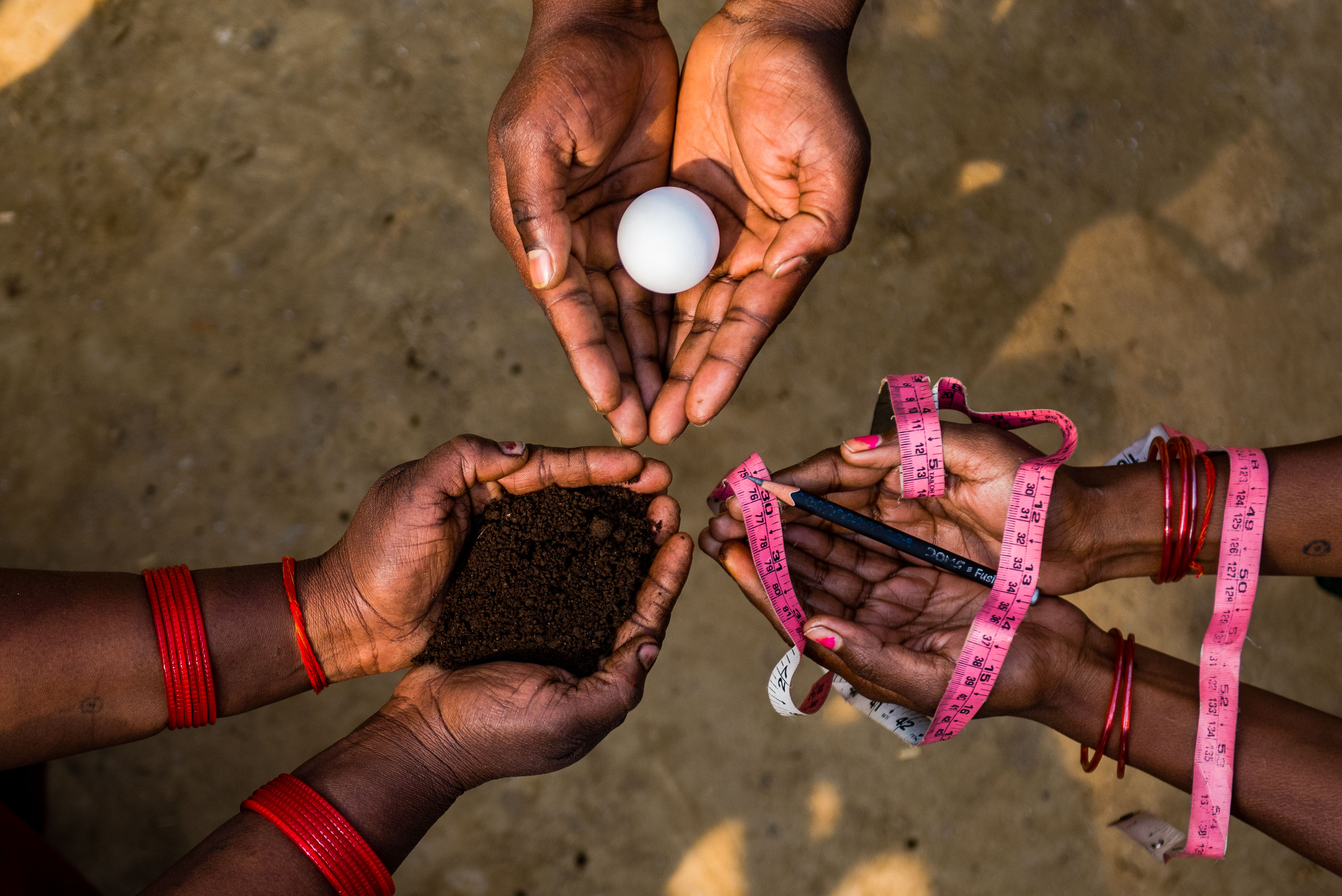Platforms for Green and Inclusive
Grassroots Entrepreneurship

The
consequences of economic growth without the creation of meaningful
employment in large numbers have become increasingly visible over the last
four decades in a manner that is more or less consistent across economies of
the world, whether developed nations, fast-growing economies or less
developed countries. The very nature of work has also seen transformation at
an unprecedented pace. And yet, one aspect has not changed. Despite the
massive deployment of capital and policy architecture that has favoured
large corporations, small businesses and micro-enterprises continue to play
a crucial role in most economies. In India, along with informal sector
enterprises, they are by far the biggest job creators, accounting for 81% of
employment.
increasingly visible over the last
four decades in a manner that is more or less consistent across economies of
the world, whether developed nations, fast-growing economies or less
developed countries. The very nature of work has also seen transformation at
an unprecedented pace. And yet, one aspect has not changed. Despite the
massive deployment of capital and policy architecture that has favoured
large corporations, small businesses and micro-enterprises continue to play
a crucial role in most economies. In India, along with informal sector
enterprises, they are by far the biggest job creators, accounting for 81% of
employment.
From the early 1980s, when Dr Ashok Khosla and Dr Christian de Laet wrote the Blue Book (the Development Alternatives Group manifesto for eradication of poverty and regeneration of nature), we have believed that development that builds upon the initiative and energies of nano, micro and mini enterprises is not only desirable but critical to the emergence of sustainable, resilient, green and inclusive economies. We have also known that left to their own devices, entrepreneurs can build businesses but are likely to take an extended period of time to reach levels of economic viability and unlikely to realise meaningful social and environmental outcomes.
Early evidence of the impact of this approach could have on fulfilling several Sustainable Development Goals (SDGs) was seen in the establishment and successful operation of over 5000 local building material enterprises over 5 years between 1996 and 2001. In this phase of Development Alternatives’ work, the emphasis was on enhancing access to game-changing technologies, most of which had gone through the entire cycle of innovation, incubation and commercialisation within the Development Alternatives Group. The development and dissemination of Micro Concrete Roofing technology, generously supported by the Swiss Agency for Development and Cooperation, is a prime example. Across 6 states, 3700 small businesses were set up with investments of approximately USD 1500 to 2000, which were made by the entrepreneurs themselves in each business. Put together, by 2006, these entrepreneurs had put over 8 million tiles on people’s homes and businesses, in most cases replacing poor quality thatched roofs.

In the next decade, leading up to the commercial liberation of a range of Development Alternatives’ technologies and those sourced elsewhere, Development Alternatives and TARA expanded the scope of enterprise support services to include access to finance, market linkages and capacity-building measures to put together a comprehensive bouquet of ‘T-F-M-C’ services. Since 2005, TARA and its business affiliates have also extended the approach to the creation of green, employment-intensive enterprises in other countries, most notably Nepal, Bangladesh and a few African countries, including Malawi.
Development Alternatives focus on entrepreneurs as a means to amplify and accelerate economic, social and environmental impact remains steadfast. Over the years, innovation across a growing range of enterprise packages and business models has spread to key sectors such as water and sanitation, waste management and renewable energy, among others. In the Rockefeller Foundation supported ‘Smart Power for Environmentally Sound Economic Development’, TARA coordinated an effort across partner organisations and solar power companies to create stakeholder ecosystems that would help the companies run rural microgrids in a profitable manner. Teams from TARA and Development Alternatives opened up what companies would perceive as a ‘black box’, making it impossible for them to run viable operations, and also engaging with communities to demonstrate how they could ensure access to electricity to run local enterprises and boost incomes.
 Particular emphasis is given to
processes, tools and methods that are replicable and, therefore, amenable to
impact at scale in response to the challenge of widespread joblessness. By
sheer magnitude, with 12 million young Indians entering the employment
market every year and women’s workforce participation rate plummeting to
27%, the adverse impacts of jobless growth are likely to hit us in the
immediate term, perhaps before the effects of climate change are felt by
society at large.
Particular emphasis is given to
processes, tools and methods that are replicable and, therefore, amenable to
impact at scale in response to the challenge of widespread joblessness. By
sheer magnitude, with 12 million young Indians entering the employment
market every year and women’s workforce participation rate plummeting to
27%, the adverse impacts of jobless growth are likely to hit us in the
immediate term, perhaps before the effects of climate change are felt by
society at large.
The Work4Progress programme is an example. Supported by the “la Caixa” Foundation, it has taken shape at Development Alternatives over the last six years, growing to become a sector-agnostic, multi-partner, multi-project platform on which social innovation processes, aimed at promoting inclusive entrepreneurship, can lead to the creation of sustainable livelihoods at scale.
In local ‘micro-economies’, a commitment to deep listening, co-creation and the development of ‘systemic prototypes’ has led, in India, for example, to the creation of entrepreneurship ecosystems that help set up over 100 grassroots businesses every month in geographies as small as 50 to 60 villages. In a marked shift from necessity-based to opportunity-driven entrepreneurship, these businesses create 250 to 300 new jobs across a diverse range of more than 120 different kinds of ‘enterprise prototypes’.

In Uttar Pradesh, the most populous state of India, the Work4Progress methodology and associated tools are now being rolled out in partnership through a network of over 30 organisations. In addition to civil society organisations and entrepreneurs’ associations, nationally affiliated entities such as the State Rural Livelihoods Mission, banks, micro-finance institutions and training institutes are playing an instrumental role in taking Work4Progress into its ‘acceleration phase’ with the intent of mainstreaming the systemic prototypes. Together, they have set a goal of creating 1 million jobs in the next 1000 days.
As we move into our ‘next 40 years’, Development Alternatives, TARA and our partners look forward to amplifying the rate at which local green enterprises are set up by a factor of 10 in the next 5 to 7 years without an equal increase in government spending or philanthropic funding. While this will be challenging, it is a defining characteristic of our ‘social enterprise’, and we believe that it is perhaps the only way for millions of people to secure meaningful, dignified livelihoods, for communities to adapt to the effects of climate change and for nations, indeed the world, to create a sustainable near to net-zero future.